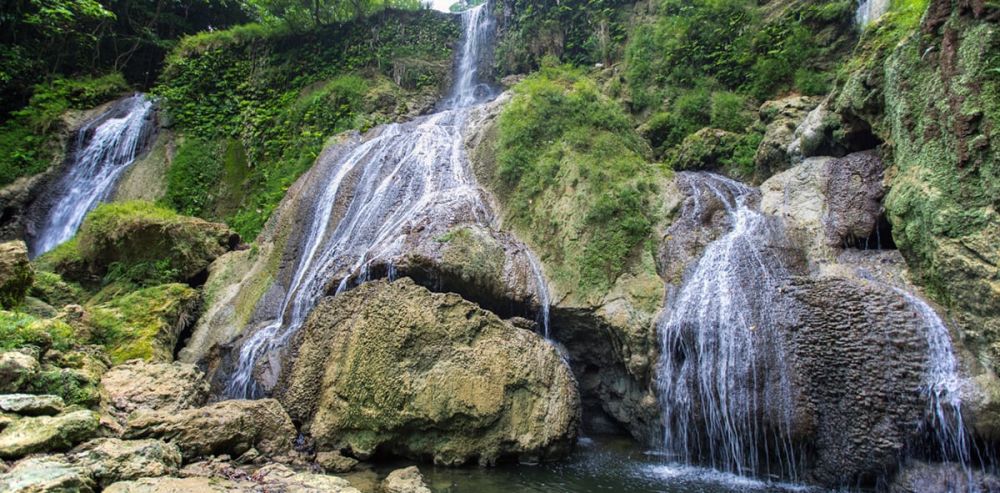

Little Andaman, a bewitching part of the Andaman and Nicobar Islands of India, is home to the mesmerizing White Surf Waterfall. This natural spectacle is not just a visual treat but also an auditory experience as the sound of the cascading waters creates an atmosphere of pure serenity. Over the years, the waterfall has become an essential part of the tourism landscape of the Andaman Islands.
Tourism in the Andaman and Nicobar Islands has been flourishing since the late 20th century. However, the inception of tourism in Little Andaman and areas like the White Surf Waterfall is a relatively more recent development. The islands were primarily known for their strategic importance and penal colony history during British rule and post-independence were restricted areas for a long time.
In the 1970s and 1980s, as restrictions eased and infrastructure steadily improved, more tourists began to venture to these remote islands seeking pristine natural beauty. The White Surf Waterfall, in particular, became a highlight for visitors on Little Andaman, as they are drawn to its seclusion and natural grandeur.
Getting to Little Andaman requires a journey by either sea or air to Port Blair, followed by a ferry ride to Hut Bay, the region where White Surf Waterfall is situated. The journey is part of the appeal, drawing visitors who seek adventure and natural beauty.
Beyond the allure of the waterfall itself, Little Andaman offers a plethora of natural wonders like beautiful beaches, dense rainforests, and unique marine life. One can indulge in activities such as surfing, snorkeling, and trekking, with White Surf Waterfall often being a starting point for various nature excursions.
In recent years, sustainable and eco-tourism have become increasingly popular, and Little Andaman has adapted to meet these trends. Efforts to minimize the environmental footprint include eco-friendly accommodations and tourism practices that respect local cultures and the natural environment. Eco-tours that combine visits to the waterfall with the preservation of the local flora and fauna are an emerging trend, ensuring that the beauty of White Surf Waterfall is maintained for future generations.
Moreover, the Andaman and Nicobar Islands administration has been proactive in conservation efforts to protect the unique biodiversity of the region. The remoteness has helped in maintaining the untouched splendor of places like White Surf Waterfall, but continuous efforts are necessary to balance both development and natural preservation.
In conclusion, White Surf Waterfall in Little Andaman represents the unspoiled charm of the Andaman Islands. The history of tourism here may have been gradual, but it has now firmly placed these islands on the map for nature aficionados and adventure seekers from around the globe. The trend toward sustainability and eco-conscious travel ensures that tourism development is conducted responsibly, safeguarding this idyllic destination for many years to come.